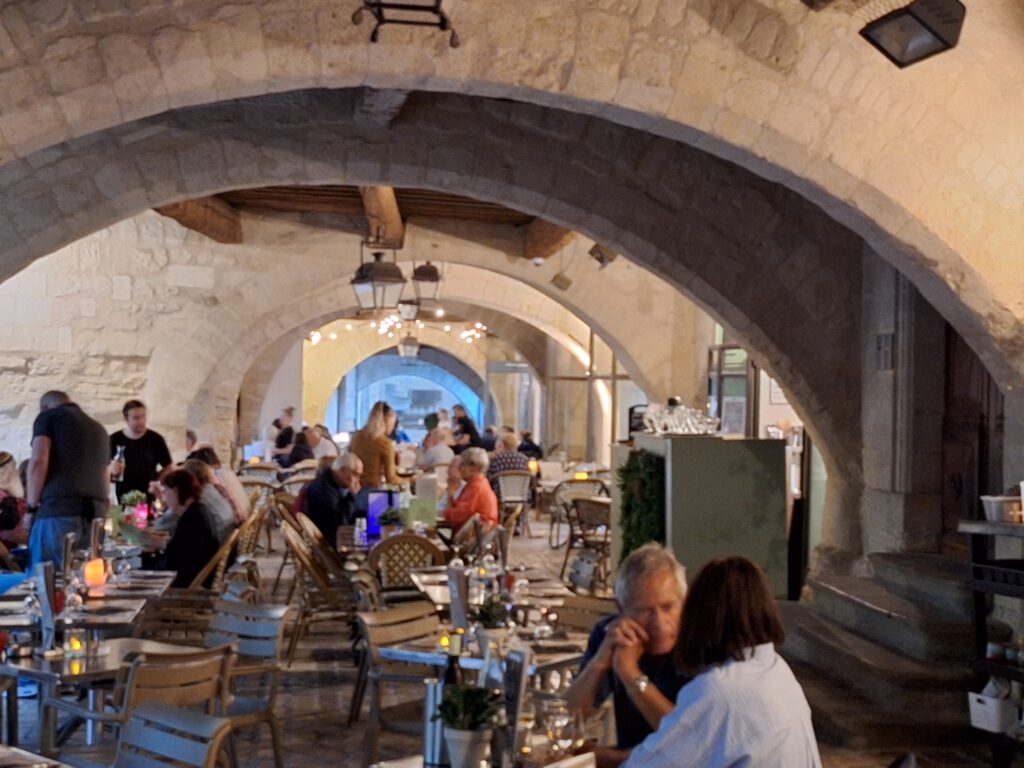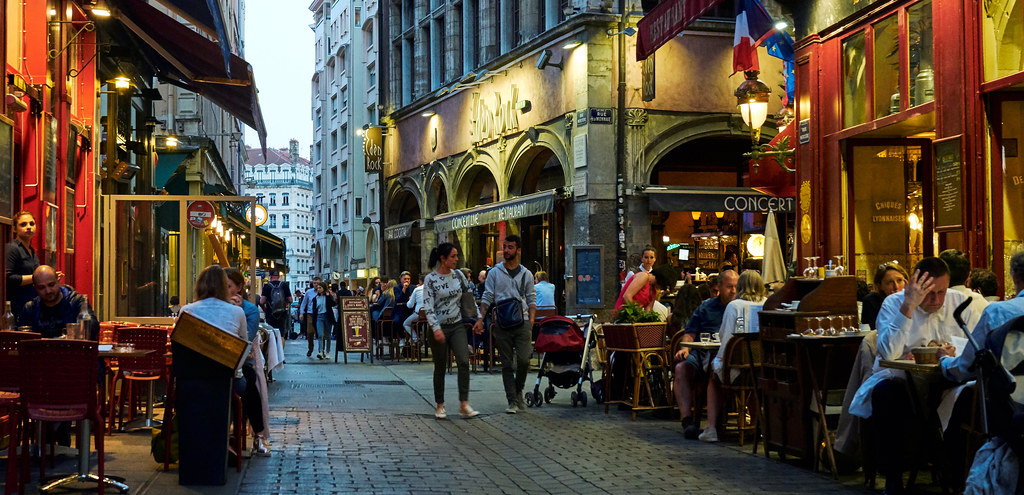French Etiquette for Travelers
Etiquette is culturally important to the French. It’s ingrained in their upbringing and daily lives. This is, of course, true for most cultures. But when you travel to France, it’s helpful to know these things, like a secret code to get along better with your hosts, be understood, and understand. So, here is a quick rundown of the main things you should know before you travel to France.
First, you should know that the French often receive unfair criticism for being rude or unwelcoming. This is an exaggeration and not the case, except occasionally, as would be the case in any country. They are less apt to smile at total strangers, so that doesn’t show dislike or rudeness. (See the post, The French People: A Traveler’s Guide.)
If you practice the following French etiquette tips, you’ll be miles ahead in smoothing out your interactions before you have them. You’ll also be a savvy traveler who knows how to blend in.
This post will cover daily interactions (including greetings and politeness), Meal and restaurant etiquette, and public behavior. If you’re wondering about pronouncing polite words and phrases, check out my free online mini-course, French Greetings and Polite Expressions. The course walks you through what to say, when to say it, and how to pronounce it.
Daily interactions
- Always say “bonjour” and add Madame, or Monsieur, when you enter a boutique, post office, bakery, or any other small business. You wouldn’t do this when entering a big box store (like Carrefour or Auchan, similar to Super Walmart), but anytime you have direct contact with the employees or owners. Don’t just launch into what you want, even with a nice “excusez-moi”. No, you must start with Bonjour up to about 6 pm, then switch to Bonsoir, or good evening.
- Also use bonjour when stopping someone on the street to ask for directions. (I sometimes start with ‘excusez-moi’ to get their attention, then follow with Bonjour before asking my question.)
- When you meet someone new, just like in the US or UK, you’ll shake hands or nod and say “nice to meet you.” When you see people give a kiss on each cheek, it is typically reserved for family members, close friends, or friends of friends. You may be introduced to someone by a good French friend, and that person may initiate the kiss on both cheeks, called La Bise (pronounced La Beez). Usually in Paris, there’s one on each cheek, but it could be three or even four, depending on where in France the person comes from. Let the other person initiate.
Meal and restaurant etiquette
- First, at restaurants. You arrive at a restaurant. Wait at the check-in spot, just like you would at home. Make eye contact with the person seating you and say, of course, Bonsoir. Good evening. Don’t seat yourself (unless it’s a fast-food restaurant…and why would you want to go there while in France? Just saying…)
- The server arrives to take your order after you look over the menu. He or she will ask for your food order first, then your drink order. If you order a prix fixe menu that includes several courses, you’ll usually have to order all of them at once. (Here’s a tip: if you want tap water to go with your meal instead of ordering bottled water, say Une (oon) carafe, s’il vous plaît. That means you want a carafe of water. It’s free, and they don’t look down on you for asking. It’s perfectly normal.)
- Overall, don’t be in a hurry. It’s not the French way when eating! The French don’t rush a dinner out when the company and good food are both to be savored. The same applies to you, the tourist. They don’t want to rush you either. This also goes for the speed at which the food is served. Be patient. Allow extra time at meals.
- Normally, in a French restaurant, you will have fewer servers covering more tables than back home. Be patient. They won’t come around as often, and possibly not at all, once you’ve received your food. But it’s okay to catch their eye while they’re serving someone else and say, excusez-moi… with a smile.
- When you are ready to leave, you’ll have to request the bill. The reason is that in France, meals are leisurely. There could be a lot of time between courses, and your server doesn’t know if you want to linger and digest a while before leaving. When you’re ready, signal your server and say, “l’addition, s’il vous plait.” The word is addition with a nasal ending.
- You’ll likely be served a basket of sliced baguettes when your food comes or right before then. You won’t have a bread plate. Place your baguette slice on the table just to the left of your plate. You likely won’t have salt and pepper shakers on the table. Don’t ask unless you must. Usually, the food is seasoned well without adding more.
- Always keep your hands visible, not on your lap. Other cultures want the left hand on the lap, but not in France. Place your forearms on the edge of the table (never your elbows).
- When you finish your meal, lay the knife and fork parallel across the right side of your plate. (You may notice French diners will not switch the fork from left hand to right, as Americans do. They keep their cutlery in the same hand. This is called the continental style.)
- Don’t be alarmed if there are sometimes dogs sitting quietly under a table in a restaurant.
- The tip is included in the cost of the food. However, rounding up or adding a small extra tip is always appreciated.

A French Person Invites You
- If a French person invites you to their home for a meal, it’s a great honor! You’ll get to sample home-cooked French cuisine and see how a French person lives in day-to-day life. Don’t ask if you can bring anything. That’s common in the US, but not in France. Yet don’t show up empty-handed. Bring something like a bouquet, chocolate, champagne, or even a craft that you’ve bought or made. Wine is okay, though they’ve likely already chosen wine for the meal.
- Don’t arrive early. Arriving ten to fifteen minutes late is acceptable.
- When you arrive, you probably won’t eat right away. There may be an apéritif beforehand, which is an offering of before-dinner drinks (liqueur, Porto, etc. not wine), and possibly some salty snack food, like peanuts or savory canapes. During the meal, there will usually be wine served. After the meal, there may be a salad course, then a cheese course, and at the end, dessert. Coffee will come after dessert, not with it . (You’re free to refuse coffee, of course.) There might be a digestif offered. You’re not offending anyone to say no, thank you.
- Don’t begin eating until the host or hostess signals with a phrase like, Bon appétit.
Public behavior
- Generally, Americans are louder than Europeans, especially when in a group. Notice this the next time you’re on a train or metro with a group of Americans. Many people don’t act as if anyone else is there besides them, and this can annoy French people, who are quiet and discreet. Always be aware and respectful of the people around you. Notice the way they act. You can learn so much this way!
- Even if you don’t speak French, a few words go a long way. It says you care about their culture and about them enough to learn a few words. Of course, if you go further than a few words and learn more French, all the better. You’ll be better able to appreciate the people and the culture. Trust me on that. (I have a complete or beginner-level online course for travelers to France. Click HERE to learn more.) At least get the Free mini-course or learn some words online before you go.
- If you’re taking an escalator or a moving sidewalk, always stay on the right. (This is the case in any country.)
- Don’t assume the customer is always right. Maintaining a calm tone is essential to staying polite and getting good service.
- Always show gratitude for help or service. Merci, Madame. Merci, Monsieur.
Many of the polite rules of France are the same ones you’re accustomed to at home. Consider others, greet them, behave discreetly (since you’re not in your own country.) It parallels the way you’d behave in another person’s home. You wouldn’t act like you do in your own living room.
You’ll see French people in a new light, as people who welcome you and desire you to love and respect them and their country. They’ll be respectful and friendly right back at you! It’s a win-win!
Related Posts
The French People: A Traveler’s Guide
Real French for Travelers Online Course (click to learn more)





